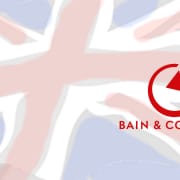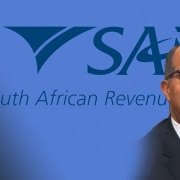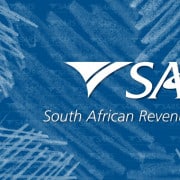|
Getting your Trinity Audio player ready...
|
The South African government’s extensive, but sometimes redundant use of management consultants to help drive its strategic goals once again came under the spotlight recently with the online launch of The Consultants, a report by civil society group Open Secrets.
Authored by Zen Mathe, Luvano Ntuli, and Mamello Mosiana, the report looks into the dubious nature of some of the business of management consulting firms that have been a fixture of governments’ apparatus – notably state owned entities (SOEs) in South Africa – for years, often taking advantage of the governments that employ them. The lack of accountability from these firms is a worry, says Open Secrets.
Under the spotlight in The Consultants are globally recognised firms McKinsey and Company, Bain and Company and lesser known – at least in the South African context – Boston Consulting Group (BCG). The first two have over the past few years come under the spotlight due to the work of the state capture commission – chaired by Chief Justice Raymond Zondo between 2018 and 2022 – that investigated state corruption in South Africa.
BCG is highlighted in the report for similarly dubious work for Saudi Arabia’s prince Mohammed bin Salman and the government of that country, as well as in Angola with the Dos Santos empire. McKinsey is associated, through the commission, with the capture of Eskom and Transnet, the biggest losers in the state capture project, while Bain is named as a beneficiary in the capture of the South African Revenue Service (Sars) under former commissioner Tom Moyane. Bain is currently banned from doing business with the South African government for 10 years, starting in 2022.
Use of consultants allowed corruption to flourish
“Judge Raymond Zondo’s report highlights that the use of consultancy firms at SOEs was a redundant use of service providers that allowed corruption to flourish. Not only did consultancies provide the model for state capture, but also the biggest management consulting firms were at the heart of some of the most financially devastating state capture contracts,” notes the report.
“The looting at Sars, facilitated by Bain, is said to have resulted in an estimated R100-billion in lost revenue at the country’s tax collection agency, while Judge Zondo described Transnet – which contracted McKinsey in the state capture years – as ‘the primary site of state capture in financial terms’. According to a submission made by Paul Holden of Shadow World Investigations to the Zondo Commission, Transnet paid over R41-billion to the benefit of the Gupta enterprise.”
Repayment does not equal absolution
McKinsey made a very public statement when it returned about R1-billion, and later R650-million to the South African government in money earned through its business with Eskom and Transnet respectively. This did not escape the commission, which glowingly praised the company for this, while also urging other private players directly or indirectly implicated in state capture to follow suit.
The authors of The Consultants, however, note that even in its acknowledgment of McKinsey’s repayment of monies owed to South Africa, the commission called the company out, saying the exercise did not absolve it for the role it played.
McKinsey disagrees with this position, however, as evident in a statement responding to the National Prosecuting Authority’s announcement in September last year that it intends to pursue criminal charges against the company. “After four years of exhaustive evidence, the commission did not make any recommendations for further action against McKinsey and praised our ‘responsible corporate citizenship’. Given no new information has been presented since the commission, we believe pursuing McKinsey does not have merit and we will defend ourselves against any claims.
“The commission did reveal evidence that would suggest Mr. [Vigas] Sagar had been untruthful with us and also found that McKinsey had no knowledge of this. Where we found issues of concern regarding Mr. Sagar’s conduct, we reported them to the appropriate law enforcement authorities, including the NPA, for which he will have to account.”
Sagar was the company’s lead consultant in dealings with Transnet and Eskom.
Bain’s own response to the ban by National Treasury was to deny collusion with Sars to manipulate procurement processes. “There is no evidence that Bain colluded with Sars or engaged in any corrupt and fraudulent practices. While we acknowledge that Bain SA was aware of the request for proposal [for advisory services] before it was formally issued, we have found no evidence, nor has any been produced, that Bain manipulated the procurement process in any way to exclude other bidders or specifically advantage Bain.”
The commission did find that there was collusion, as did the Nugent commission before it.
Costly and unaccountable
With all that said, the question that remains is whether or not these firms are relevant in helping government function in the first place. For years, the Auditor-General has cautioned government institutions against over-use of consultants for work that could be done internally. While some state institutions require strategic direction that is often garnered through consultants with global expertise, others simply divert duties to them without much thought.
It is, however, not only state institutions that should bear the brunt of public criticism, but the firms themselves as well, because of the way they position themselves.
“Because the consultants have managed to frame and develop the modern-day business world, people assume that they are the experts of the business world. Therefore, if you’re carrying out a project or running an institution, they are the best placed to advise you on how to structure that institution, how to get your work done,” argues Mosiana.
Unfortunately, in the case of South Africa’s SOEs, it was a redundant use of services. Paraphrasing the Zondo report, she adds: “Every time consultants were brought in to a project, whether at Eskom or Transnet or Sars, it was really as a conduit of corruption where sometimes they were actually active participants in the corruption.”
The lack of accountability on the part of consultants is a red flag, but state institutions too have not constructively addressed their skills deficit, and instead lean on private sector help. “The problem is these are not public servants. They are not beholden to the public, they do not have any duties to the public. Their duty is to their bottom line.”
Because their use is not regulated, state institutions do not generally declare publicly their use of private consultants. “It only ever really becomes apparent that they have done something once there is a corruption scandal that explodes,” Mosiana says.
Monitoring consultant use will help sustainability
One of the ways that government could achieve better, sustainable results in its developmental goals is if in hiring consultants, it makes it possible for state institutions that need them to not only impart the skills they bring, but for their impact to be monitored by those institutions.
Ntuli reiterates: “Because there is no regulation [of consulting firms], there’s no-one to answer to. There’s also no legal requirement that consulting firms are subjected to in comparison to other institutions…this is something that needs to be seriously considered if we are to think about their role.”
Mathe touches on the social cost of corruption involving consultants. In the case of Bain, for instance, despite its presence at Sars, the revenue service failed to meet its revenue targets. “The shortfall between 2014 and 2015, for example, was R7.3-billion, and that continued to grow. In 2015 and 2016 there was a shortfall of R11-3-billion, and then in 2016 and 2017 we have a shortfall of R30.7-billion.”
The continued decline resulted in the first VAT hike since 1994, in 2018. In that way, she argues, the ordinary South African is adversely affected by the decision to spend over R100-million of public funds to a consulting firm, despite there being sufficient skills in-house. So it’s not enough for Bain to pay back the money it made through Sars, albeit with interest, as this does not reverse the social impact of their actions.
Open Secrets recommends the following, if government is to continue using consultants:
- Investigate and prosecute both firms and their executives in criminal matters that involve local state contracts, but also decisively push for their prosecution in countries where they are headquartered;
- Enforce greater transparency in the dealings of consultancies and government: the fee structures of projects, details of their contracts, and the nature of their work in general;
- Bar both consultants and their accomplices. Just as the South African government has done with Bain, it must also take into consideration the professional firms with which it worked, like KPMG, McKinsey, Deloitte, PwC, and SAP, among others;
- Create a regulator for consultant firms. State institutions must be guided by strict regulations on vetting, governance and financial stability of firms;
- Develop international law for corporate accountability: “The implementation of an international, legally binding instrument, through the ratification of the UN Principles to Regulate, in International Human Rights Law, the Activities of Transnational Corporations and Other Business Enterprises, is vital.”
In closing, the report cautions once more on the point of regulation. “It is abundantly clear from this report that the management consultancy industry needs urgent regulation and curtailing. The consequences of allowing these unaccountable consultants to run amok will have disastrous ramifications for a world that is increasingly unequal. Austerity measures have meant more limitations on spending on essential services like education, healthcare, social welfare, and housing.”








